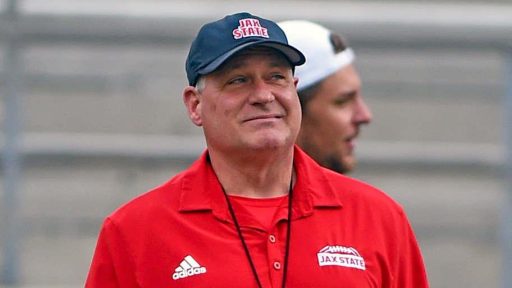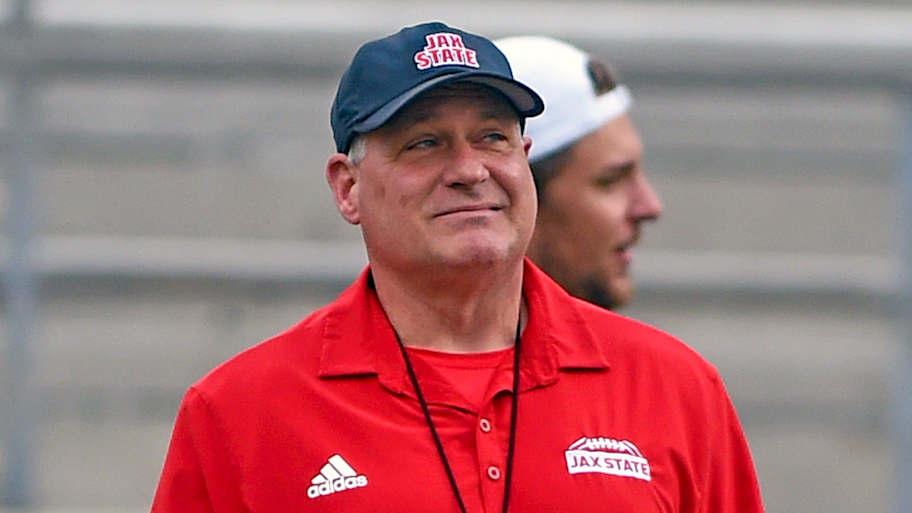Instant Access
No Waiting, Start Streaming Now
24/7 Support
Always Here to Help
Multi-Device
Watch on Any Screen
8K Quality
Crystal Clear Streaming


Instant Access
No Waiting, Start Streaming Now
24/7 Support
Always Here to Help
Multi-Device
Watch on Any Screen
8K Quality
Crystal Clear Streaming
In the world of college football, few stories are as captivating as that of Rich Rodriguez and his tumultuous relationship with West Virginia University. A name synonymous with both triumph and controversy, Rodriguez’s journey has been marked by moments of brilliance, setbacks, and a profound longing for redemption. As he returns to the helm of a program he once lead to great heights, questions abound: Can the prodigal coach reclaim his legacy in a land that once cheered his every victory? In this exploration, we delve into the complexities of Rodriguez’s past, the evolution of the Mountaineers football program, and the hopes and challenges that accompany this second chapter. Will this time be a charm, or merely a chance to revisit old ghosts? Join us as we navigate the intersections of ambition, nostalgia, and the relentless pursuit of success in the heart of Appalachia.
For Rich Rodriguez, a return to Morgantown could feel like stepping back onto both sacred ground and contested territory. Once hailed as the architect of West Virginia University’s rise to national prominence, his controversial exit in 2007 left behind a mix of unfinished business and lingering wounds. Now, the lingering question isn’t just weather he can rekindle past glory, but if he can repair the trust of a fanbase that once idolized him. This potential second chapter could offer an fascinating blend of professional resurrection and personal reconciliation.
On the field, the stakes are equally as complex.If Rodriguez returns, his ability to deliver results swiftly will determine whether this reunion is embraced or criticized. Fans will point to his track record with dual-threat quarterbacks and dynamic offenses,but how he adapts to modern college football will be key.
| challenges | Opportunities |
|---|---|
| Repairing fan relations | Revitalizing WVU’s offense |
| Adapting to new football trends | Leaning on recruiting expertise |
| Navigating past baggage | Writing a redemption story |
Rich Rodriguez’s first tenure at West Virginia was a rollercoaster of ingenuity and controversy. Between 2001 and 2007, he transformed the Mountaineers into one of college football’s most innovative offensive teams, pioneering a spread-option attack that wreaked havoc on defenses nationwide. Under his leadership,West Virginia secured four Big East Championships and consistently ranked among the nation’s best in rushing yards per game. At its peak, the team garnered national attention with back-to-back BCS bowl appearances, including a resounding victory in the 2006 Sugar Bowl. Yet, his sudden departure for Michigan after the 2007 season left lingering feelings of betrayal among fans, adding complexity to his or else prosperous legacy.
| Season | Record | Key Achievements |
|---|---|---|
| 2002 | 9-4 | big East Runner-up |
| 2005 | 11-1 | Big East Champion, Sugar Bowl Win |
| 2007 | 10-2 | Fiesta Bowl Appearance |
Despite his on-field successes, his time in Morgantown wasn’t entirely without its flaws. Critics often questioned his game management during high-stakes moments, and his final season ended on a disappointing note with an upset loss to rival Pittsburgh in the infamous “Backyard Brawl.” Off the field, tension with the university over contract terms and facility upgrades climaxed in a dramatic exit. For Rodriguez to reclaim his place as a beloved figure in Morgantown, he’ll need to not only replicate his prior success but also mend old wounds and prove he’s the right leader for the program’s future.
Rich Rodriguez’s return to Morgantown for a second term is a recipe for both renewed optimism and unavoidable scrutiny. While his offensive genius is still celebrated, West Virginia’s evolving football landscape poses significant challenges. The Big 12 is more competitive than it was during his first stint, with several programs bolstering their recruiting pipelines and adapting to the ever-changing demands of collegiate football. Rodriguez must quickly adapt to increased pressures, including managing the NCAA transfer portal and NIL (Name, image, Likeness) opportunities, which have reshaped how coaches build and maintain competitive rosters.
However, with challenges come potential opportunities that could cement his legacy. His familiarity with WVU’s culture and ability to win over fans could give him an early advantage. Prioritizing strategic partnerships with boosters and alumni could help him maximize NIL funding, aiding recruitment. Additionally, Rodriguez’s history of developing high-caliber quarterbacks could unlock success on the field. Here’s a snapshot of key areas where he faces obstacles and opportunities:
| Key Metrics | First Term (2001-2007) | Potential for Second Term |
|---|---|---|
| Bowl Game wins | 3 | 4+ |
| Conference Titles | 2 | 1-2 |
| Offensive Ranking | Top 5 (Best Year) | Consistent Top 10 |
For Rodriguez to make a significant impact in his return to West Virginia, crafting a winning strategy both on and off the field is essential. Building trust with the fanbase and key stakeholders should be a primary focus. Building bridges with alumni,engaging in community outreach,and re-establishing relationships with local high school coaches can create a strong recruitment pipeline. Emphasizing transparency in program goals and decision-making processes will also foster long-term loyalty and confidence. Additionally, incorporating modern coaching techniques while staying true to the fast-paced offensive style he’s known for could yield impressive results, making him a threat in the conference once again.
Rodriguez must also embrace West Virginia’s unique identity and leverage it to reinforce the culture of the team. this can include harnessing the pride and passion of Mountaineer Nation to create a formidable home-field advantage. Focusing on the holistic advancement of players—academically, athletically, and personally—can place the program in a strong position for sustained success. Here are some focal points for Rodriguez’s roadmap to success:
| Key Area | Proposed Action |
|---|---|
| Local Recruitment | Host annual scouting camps in West Virginia. |
| Fan Engagement | Introduce town hall-style events with Mountaineer fans. |
| Team morale | Organize motivational workshops featuring alumni players. |
| Facility Upgrades | Modernize training equipment and expand locker room amenities. |
As the dust settles on Rich Rodriguez’s return to West Virginia, the echoes of a storied past reverberate through the state he once called home. With each passing game, the questions linger: Can he rekindle the magic that once captivated mountaineer Nation? Can he weave together the fabric of a team that has faced the trials of transition and turmoil?
In this second chapter, both Rodriguez and West Virginia stand at a crossroads, reminiscent of their earlier days yet infused with the lessons of the past. The challenges ahead are formidable, but so too are the opportunities. As the season unfolds, fans and critics alike will watch with bated breath, hoping that this time, the reunion will be not just a nostalgia trip, but the beginning of a new and enduring legacy.
Whether the charm of their history can guide them into a brighter future remains to be seen, but one thing is certain: the spirit of West Virginia football is alive and well, ready to write another chapter in its ever-evolving story. The stage is set, the players are in place, and as the gridiron beckons, only time will tell if history will indeed repeat itself in the most enchanting of ways.
34,353
Live TV Channels
162,404
Movies
27,802
Series
284,023
Total Subscriptions
139,854
Users Online
142,887
Total Resellers

